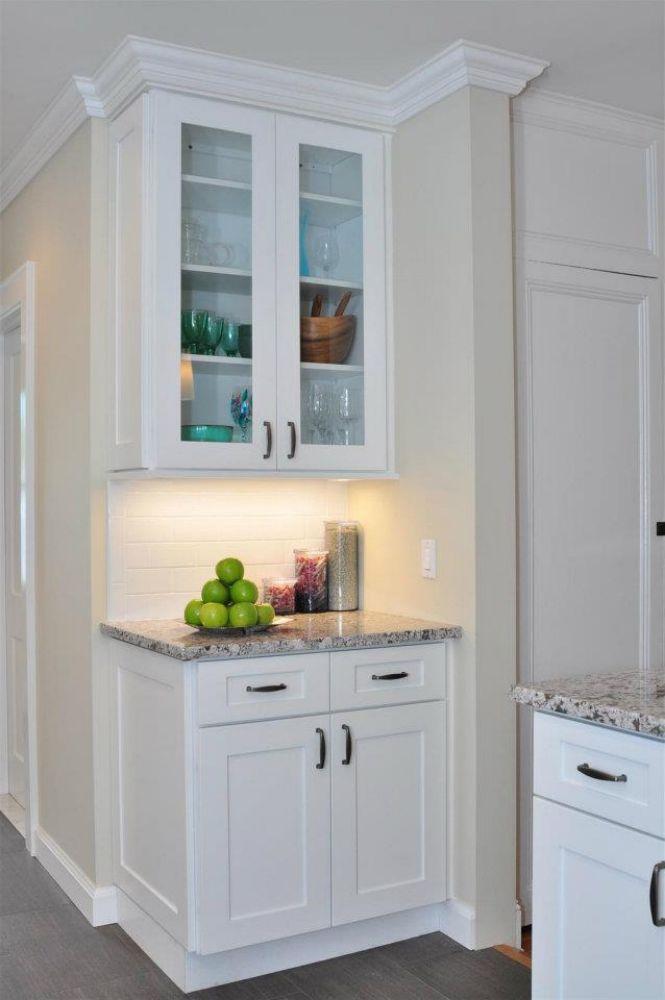How Do You Remove Grease From Forevermark Uptown White Cabinets?
Understanding Forevermark Uptown White Cabinets
Forevermark Uptown White cabinets are a popular choice for homeowners who value a clean, bright, and timeless kitchen design. These cabinets are made from high-quality materials with a smooth painted finish, making them both durable and visually appealing. However, kitchens are prone to spills, splatters, and airborne cooking residue—particularly grease—that can build up over time if not addressed. Grease can be especially visible on white cabinets, and improper cleaning techniques can damage the paint or dull the finish. Knowing the correct methods and safe cleaners for grease removal is essential for maintaining both the beauty and longevity of your cabinets.
Why Grease Builds Up on Cabinets
Grease buildup is a natural byproduct of cooking. When oils and fats are heated, they release vaporized particles into the air. These particles can settle on nearby surfaces, including cabinet doors, handles, and trim. Over time, they mix with dust, creating a sticky film that’s more challenging to clean. Kitchens without proper ventilation or those that see frequent frying or sautéing are especially prone to grease accumulation. While Forevermark Uptown White cabinets have a smooth surface that resists staining to some degree, prolonged exposure to grease can still cause discoloration and surface dullness if not cleaned regularly.
Preparing the Surface for Cleaning
Before starting the cleaning process, it’s important to remove any loose dust or debris from the cabinet surfaces. Use a dry microfiber cloth to gently wipe down the area, preventing dirt from scratching the paint during cleaning. Next, ensure you have the right tools and cleaners ready. The goal is to break down and remove the grease without using products that could damage the painted finish. A combination of gentle cleaning agents, warm water, and soft cloths is typically the safest approach.
Using Dish Soap and Warm Water
For light to moderate grease buildup, a simple solution of warm water and mild dish soap is highly effective. Dish soap is designed to cut through oils, making it a safe and practical choice. Mix a few drops of dish soap into a bowl of warm water. Dip a microfiber cloth or soft sponge into the solution, wring out excess liquid, and gently wipe the greasy areas. Rinse the cloth often to avoid spreading the grease around. Once the grease is removed, wipe the surface with a clean, damp cloth to remove any soap residue, then dry with a soft towel to prevent water spots.
Vinegar and Water Solution
For slightly tougher grease stains, a vinegar and water mixture can be very effective. Vinegar naturally breaks down oils and helps disinfect surfaces without being overly harsh. Mix one part white vinegar with two parts warm water in a spray bottle. Lightly spray the greasy areas and let the solution sit for about 2–3 minutes to loosen the grease. Wipe with a clean microfiber cloth, then rinse the area with plain water and dry thoroughly. While vinegar is safe for most painted finishes, avoid excessive or repeated use without rinsing, as prolonged contact can dull the sheen over time.
Baking Soda for Stubborn Grease
If the grease has hardened or is particularly stubborn, baking soda can help. Its mild abrasiveness allows it to lift stuck-on residue without scratching the cabinet surface when used correctly. Create a paste by mixing baking soda with a small amount of water. Apply the paste to the greasy spots and let it sit for 5–10 minutes. Gently rub with a soft cloth or non-abrasive sponge, then wipe clean with a damp cloth and dry the surface. This method is particularly useful for cabinet edges, corners, and areas near the stove.
Avoiding Harsh Chemicals and Abrasives
While it might be tempting to reach for heavy-duty degreasers or abrasive scrubbing pads, these can do more harm than good. Harsh cleaners containing bleach, ammonia, or strong solvents can strip the paint, cause discoloration, or damage the protective finish of your Uptown White cabinets. Likewise, abrasive powders and steel wool can scratch the surface, leaving permanent marks. The safest approach is always to use mild, non-abrasive cleaners paired with gentle cleaning tools.
Preventing Future Grease Buildup
Once your cabinets are clean, taking steps to prevent future grease accumulation can save time and effort in the long run. Some preventive measures include:
-
Using a Range Hood: Always run your kitchen ventilation system while cooking to reduce airborne grease.
-
Wiping After Cooking: Quickly wiping cabinet doors and nearby surfaces after cooking prevents grease from hardening.
-
Using Protective Panels: Installing a clear, removable panel behind high-splatter zones can protect the finish.
-
Routine Cleaning: Light weekly cleaning prevents grease from building into a stubborn layer.
Cleaning Hardware and Handles
Grease doesn’t just stick to cabinet doors—it can accumulate on handles, knobs, and hinges as well. These areas are high-touch zones and may require more frequent cleaning. Remove hardware periodically for deep cleaning. For most metal hardware, dish soap and warm water are sufficient. Rinse and dry completely before reattaching to prevent moisture damage to the cabinet surface.
Seasonal Deep Cleaning
Even with regular maintenance, a seasonal deep cleaning can help maintain the appearance of your Forevermark Uptown White cabinets. This process involves removing all items from the cabinets, cleaning both inside and outside surfaces, and checking for any signs of wear or damage. Focus on areas near cooking appliances, as these are most prone to grease buildup. Seasonal deep cleaning ensures that light daily upkeep remains effective and prevents long-term staining or damage.
Conclusion
Removing grease from Forevermark Uptown White cabinets requires a balance between effectiveness and gentleness. Mild dish soap and warm water should be your go-to solution for regular cleaning, while vinegar-water mixtures and baking soda paste work well for tougher spots. Avoid harsh chemicals and abrasive tools to protect the painted finish, and take preventive steps to reduce future buildup. By combining safe cleaning practices with consistent maintenance, your cabinets will remain bright, beautiful, and grease-free for years to come.
Frequently Asked Questions
Q1: Can I use commercial degreasers on Forevermark Uptown White cabinets?
A: Most commercial degreasers are too harsh for painted finishes. Stick with mild dish soap, diluted vinegar, or baking soda paste.
Q2: Will vinegar damage the paint on my cabinets?
A: Diluted vinegar is safe for occasional use, but always rinse with water afterward to avoid dulling the finish over time.
Q3: How often should I clean grease from my cabinets?
A: Light cleaning after each cooking session and a deeper cleaning once a week helps prevent buildup.
Q4: What’s the best way to clean cabinet edges and grooves?
A: Use a soft toothbrush dipped in mild soapy water to reach into crevices, then rinse and dry.
Q5: Can I use magic erasers on Forevermark Uptown White cabinets?
A: Magic erasers are slightly abrasive and can dull the paint. Use them sparingly and only on stubborn spots, followed by rinsing and drying.

